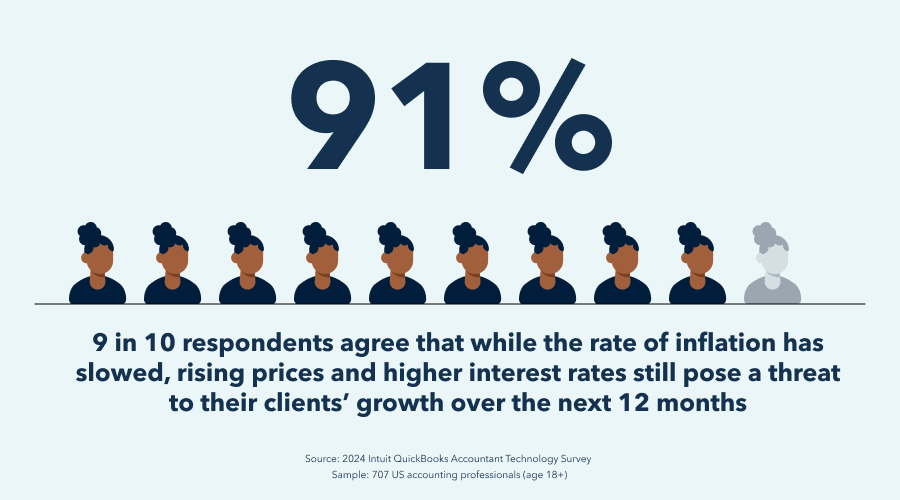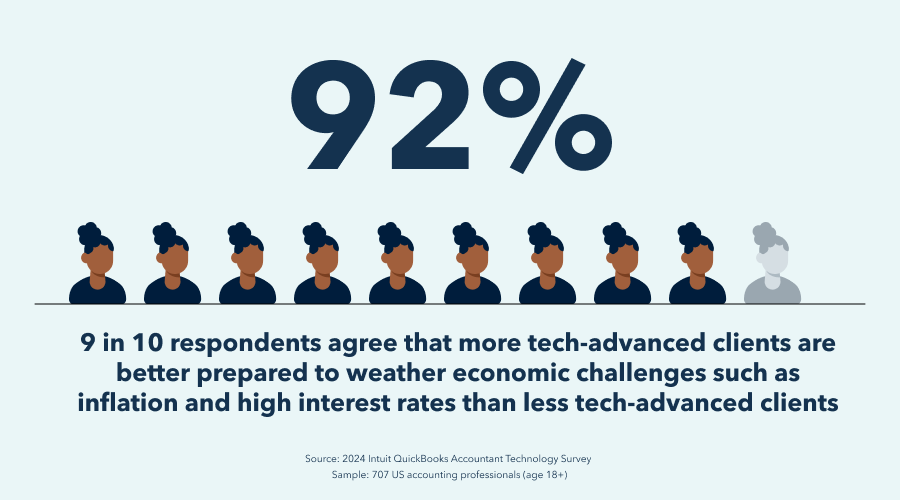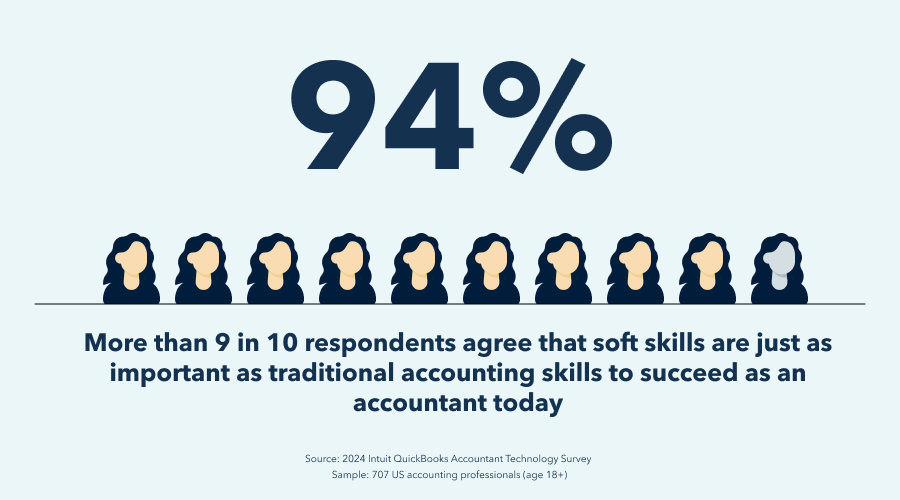While small businesses are the driving force behind the economy, they still face a number of challenges in today's fast-moving and highly competitive market. One of the biggest challenges is managing their finances effectively. It's a daunting task, particularly for businesses that lack in-house financial expertise. Fortunately, accountants have increasingly gone beyond the routine of number crunching and have stepped in to play a significant business advisory role to a growing number of small businesses. By providing vital financial guidance, expertise, and business insights, accountants can help small businesses operate more efficiently, navigate complex financial regulations, and help plan future scaling. With the help of technology like AI and automation, accountants are transforming the way small businesses grow and helping them become more resilient, even in tough economic times.
The 2024 Intuit QuickBooks Accountant Technology Survey unpacks how accounting professionals drive success for businesses by leveraging the latest technologies. For small businesses in regions like California, you can find an accountant in California who specializes in leveraging technology to boost business performance.
















